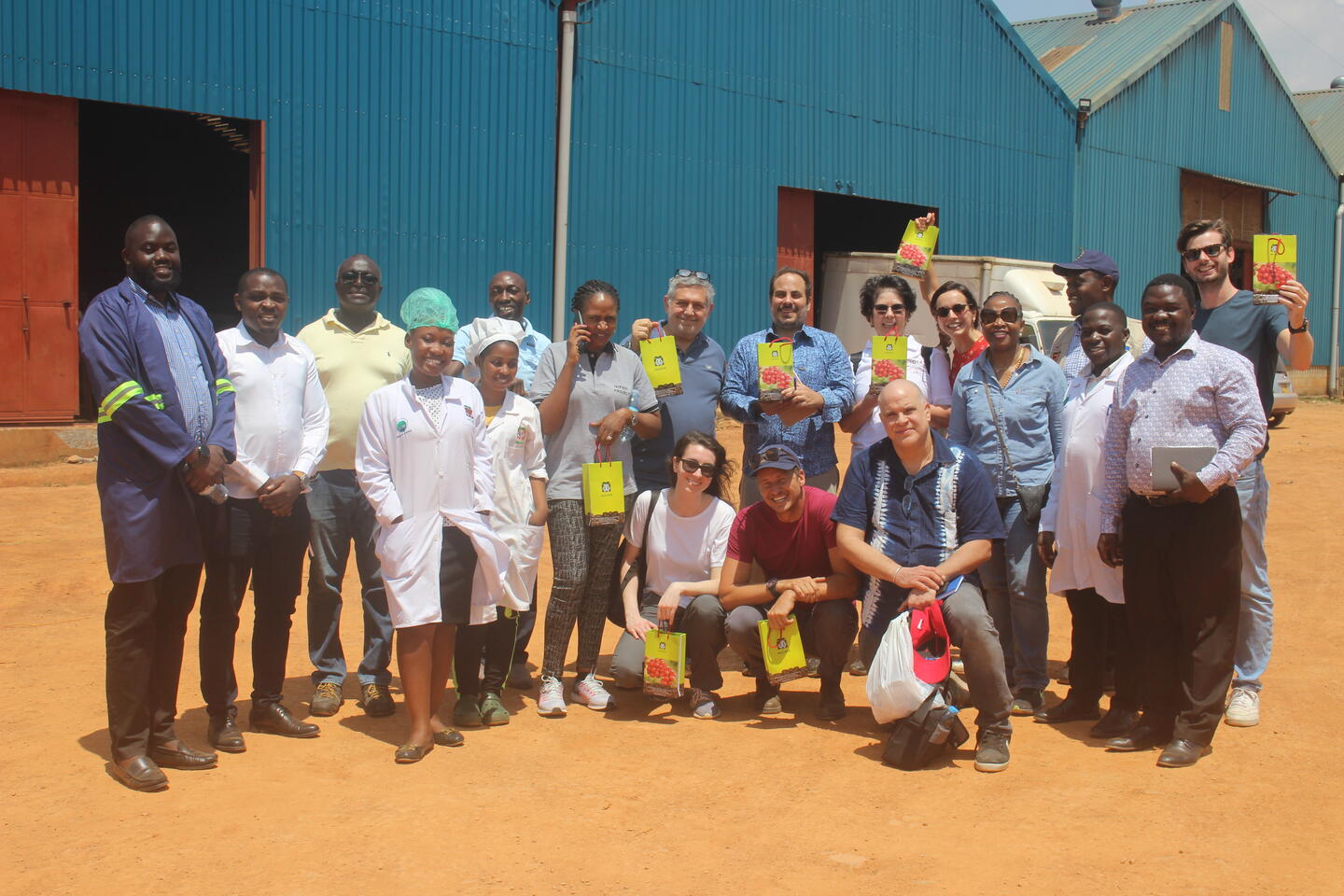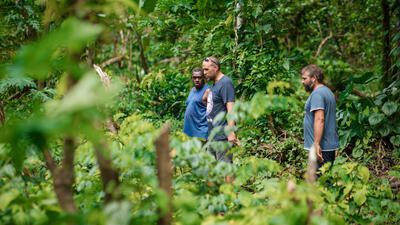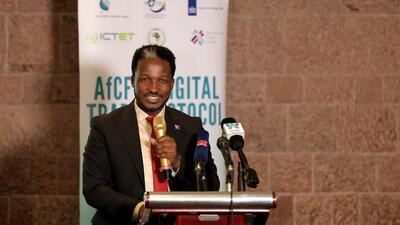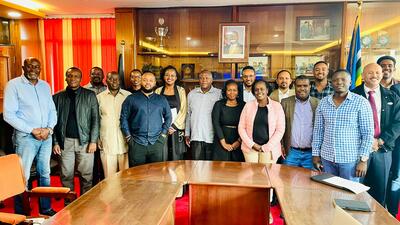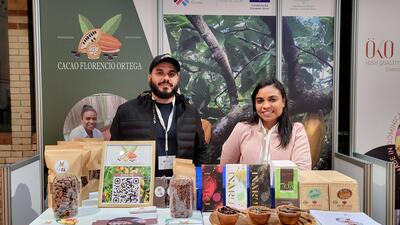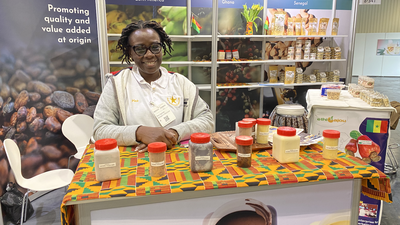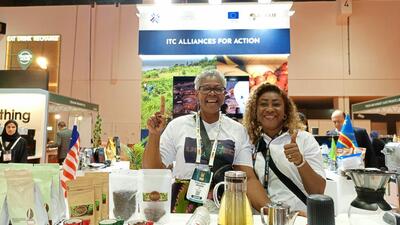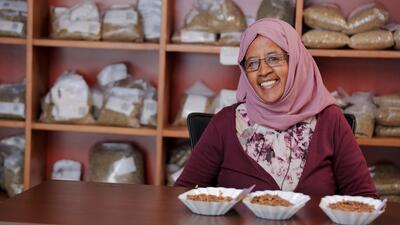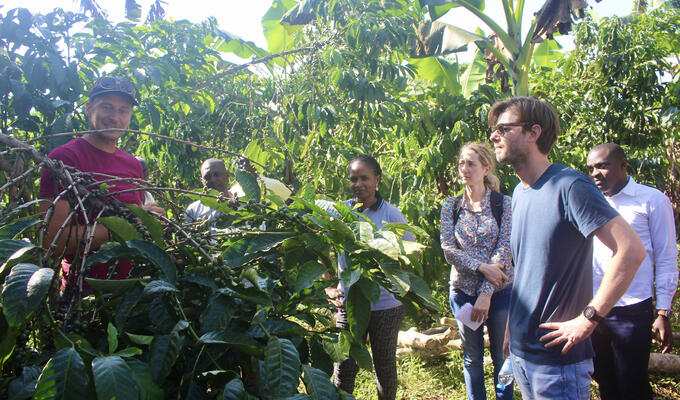
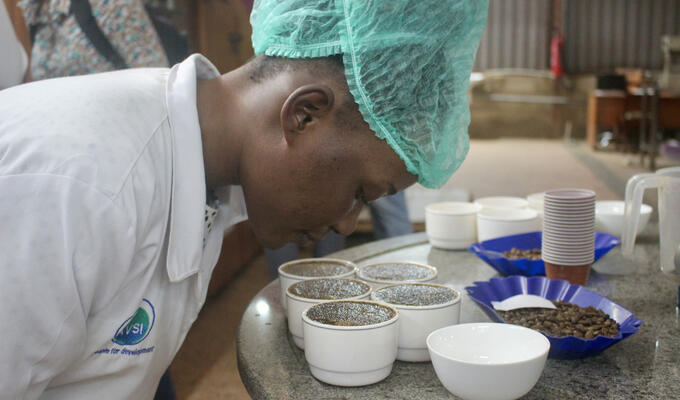
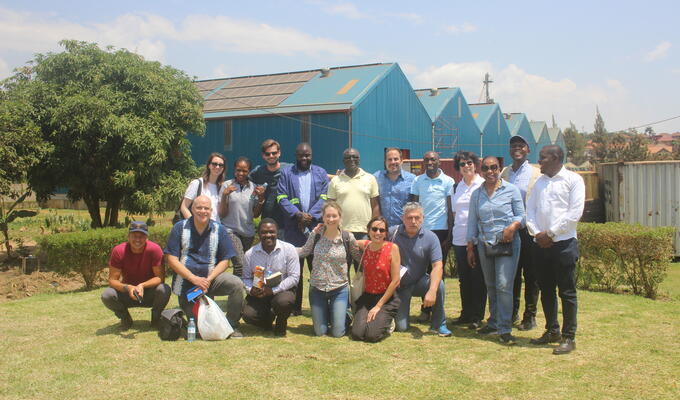
How the coffee sector is preparing for EU sustainability rules
New EU legislation will require companies to show how they protect the environment and human rights. The International Trade Centre (ITC) is supporting pilot projects to help coffee businesses prepare.
The European Parliament has just approved a new directive that will hold companies accountable for their supply chains. Businesses will have to establish systems to identify, prevent and mitigate environmental and social risks.
This due diligence covers a company’s own operations, as well as its sourcing model.
Voluntary sustainability guidelines can help address socio-environmental concerns. But in 2022, only 16% of companies worldwide said they would consider acting to address human rights and environmental concerns in their supply chain.
Since the proposal for Corporate Sustainability Due Diligence (CS3D) was published in February 2022, attention has turned to how value chain actors and stakeholders will operationalize its requirements.
Accompanying measures upstream will be crucial
Building on the notion that a ‘smart mix’ of mandatory and voluntary implementation measures is needed, the proposed Directive makes provision for ‘accompanying measures’ to be developed so companies and their value chain partners can fulfill their new obligations.
The ITC Alliances for Action sustainable agribusiness initiative is helping shape implementation mechanisms to guide suppliers and producers in developing countries through this change.
To break down how the new rules work, who they will affect, and how they can be implemented effectively, ITC and the Latin American and Caribbean Network of Fair-Trade Small Producers and Workers (CLAC) held a lecture at the Specialty Coffee Expo in the US city of Portland, Oregon.
Through collaborative efforts, ITC supports pilots for cocoa in Ghana, coffee in Ethiopia and Uganda, and textiles in Eswatini. CLAC runs pilots in coffee (Honduras and Brazil) and cocoa (Dominican Republic and Peru).
Panelists from the pilots said coordination and partnerships are needed to prepare for the legislation.
‘More important than who pays the cost is what effects the regulations have on supply chains,’ said Lavazza Group’s sustainability officer Mario Cerutti.
‘If left unchecked, it could risk creating an incentive to concentrate business in those few efficient origins who check the regulation boxes, leaving the others stranded.’
Alliances for action: ITC and partners lead pilots on support for compliance
The pilots are rooted in collaboration between buyers and their value chain partners for actionable measures to implement mandatory human rights and environmental due diligence sustainably for all. Above all, they seek to make producers’ voices heard, using a bottom-up approach that brings together small farmers, processing operations and consumer-facing companies.
The pilots look to generate concrete ideas, innovations, policies and tools to operationalize the standards.
Producers worry that the costs of CS3D could exacerbate their lack of competitiveness or contractual power, especially given their limited access to the finance required for improved due diligence.
The pilots are co-financed by the Organisation of African, Caribbean and Pacific States (OACPS), the EU and the Dutch Ministry of Foreign Affairs and implemented in partnership with the International Coffee Organization (ICO).
About the projects
The ACP Business-Friendly programme is funded by the European Union and the Organisation of African, Caribbean and Pacific States (OACPS) and jointly implemented by ITC’s Alliances for Action, the World Bank and UNIDO. It seeks to improve the ability of agribusiness firms in ACP countries to compete, grow and prosper in domestic, regional and international markets. Through the Alliances for Action approach, it promotes inclusive and sustainable agricultural value chains that value all stakeholders from farm to shelf.
The Netherlands Trust Fund V (NTF) (July 2021 – June 2025) is based on a partnership between the Ministry of Foreign Affairs of The Netherlands and the International Trade Centre. The programme supports MSMEs in the digital technologies through its EcomConnect programme and agribusiness sectors through its Alliances for Action programme. Its ambition is two-fold: to contribute to an inclusive and sustainable transformation of food systems, partially through digital solutions, and drive the internationalization of tech start-ups and export of IT&BPO companies in selected Sub-Saharan African countries.
The 'Eswatini: Promoting growth through competitive alliances II' project, funded by the EU, supports job creation for small farmers, entrepreneurs and artisans. Eswatini offers the global market unique organic produce, artisan roasted coffee, handmade cultural creations and gourmet condiment lines. ITC works closely with smallholder farmers, agroprocessors and artisans in Eswatini to support them in ways that are sustainable and benefit both people and the planet. In this way, ITC fosters and preserves cultural heritage, and draws on artisan skills and concepts of green growth.
